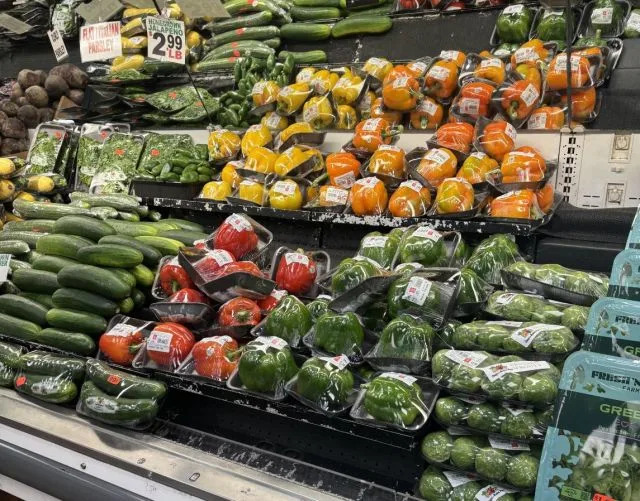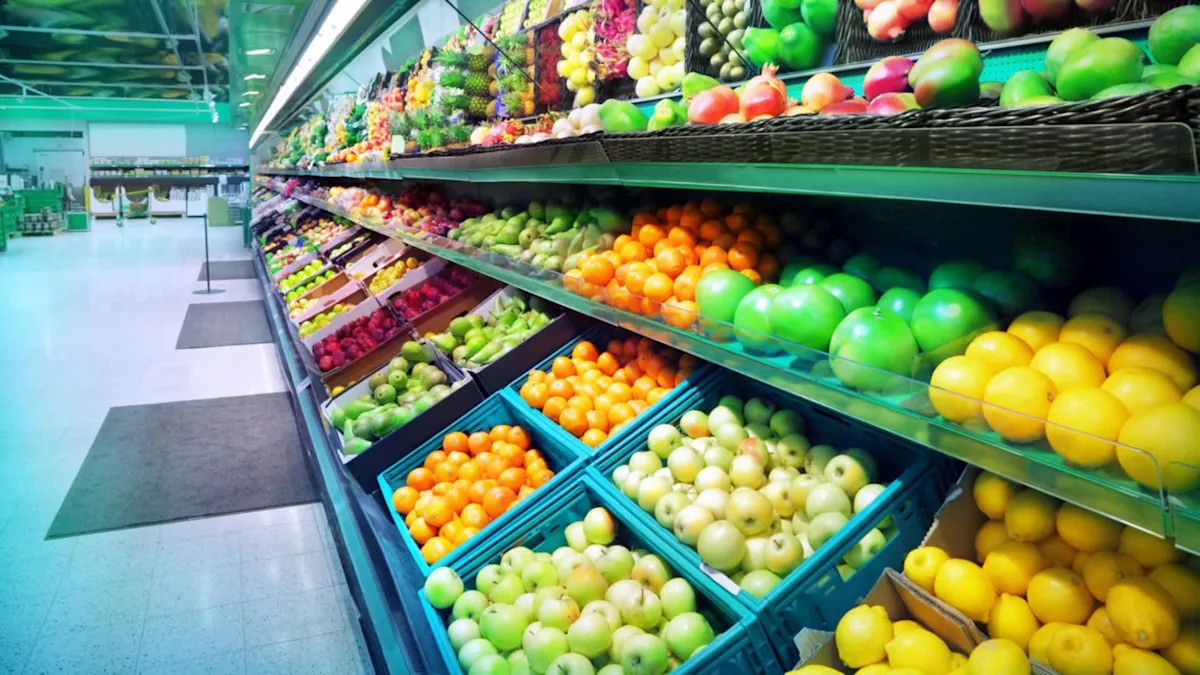With plastic pollution making headlines more often as awareness grows about its impacts, consumers are keeping a closer eye on supermarket produce sections. Produce comes with its own packaging courtesy of nature, but many stores add an extra layer of plastic nowadays, even to individual fruits and vegetables.
What happened?
One shopper discovered plastic-encased bell peppers, Brussels sprouts, leafy greens, and cucumbers at a grocery store and didn’t hesitate to call it out.
“My local grocery store started individually wrapping the produce,” the original poster said on the “r/mildlyinfuriating” subreddit.

Photo Credit: Reddit
Oddly enough, the grocer also offered unwrapped cucumbers, potatoes, and other produce alongside the plastic-wrapped vegetables. Some of the packaged cucumbers appeared to be on sale, so perhaps the store was simply trying to clear them from the shelves before they spoiled. Whatever the reason, it’s concerning to see so much plastic waste.
“Should be f****** illegal,” one person commented.
“This would annoy me. First because of the unnecessary trash. Second because it reduces good visual inspection for mold, soft spots or deep gouges/wounds that’ll lead to spoilage,” said another.
Why is plastic waste concerning?
While some commenters noted that the store likely packaged some produce individually to reduce the risk of illnesses spreading or food being damaged, the downside is that plastic-wrapped items are usually more expensive, and customers are left to deal with disposing of the extra materials.
Some plastic is recycled, but the majority ends up in landfills, where toxic chemicals leach into the environment and can harm wildlife. According to Plastic Oceans, around half of all plastics produced are for single-use items such as plastic bags, food and beverage containers, and packaging.
When plastic makes its way into oceans, it kills millions of marine animals each year and injures many others through digestive disorders and entanglement.
It’s possible that customers could recycle the plastic from this grocery store, but since plastic recycling rates are 9% or lower, it’s most likely to be thrown away.
Are companies doing anything about this?
California and Colorado have banned plastic grocery bags in stores across the state, and some ShopRite locations in New Jersey have started offering bins for customers to recycle flexible plastic packaging, such as chip bags.
Some Walmart stores in Canada are even piloting a program to sell certain food items in reusable containers. If it’s successful, it might just revolutionize the way we shop and help the world finally move away from plastic use in grocery stores.
What else is being done to reduce plastic waste?
Many alternatives to plastic are springing up, such as bioplastics, fiber and paper-based packaging, seaweed, mushroom roots, and even edible coatings using plant-derived oils.
However, since these sustainable plastics are not yet available on a large scale, you can help reduce plastic use in the meantime by shopping with reusable grocery bags, choosing unpackaged produce in stores when possible, and using silicone food containers.
Join our free newsletter for good news and useful tips, and don’t miss this cool list of easy ways to help yourself while helping the planet.

